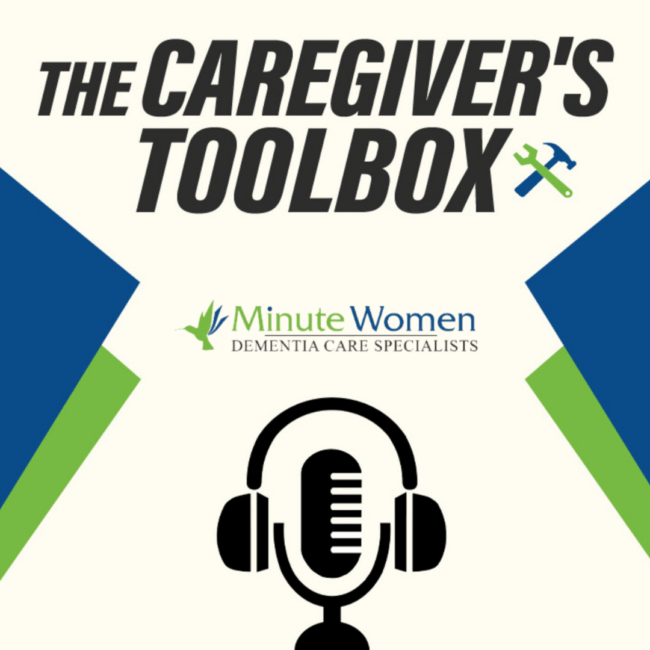Home Care 101: A Beginner’s Guide to Dementia Care
Trying to find the right guide to dementia care for your loved one can be overwhelming and sometimes downright confusing. Many families are unsure exactly what types of home care are available to them, what each option covers, does not cover, and how it all works. That’s why we created the Home Care 101 guide below – so you can be sure you are making an informed decision that’s best for your whole family.
Take your time to read through all of the services each home care option offers so you can get a better idea of what type of care you need.
Have more questions? Give us a call anytime! We’re always happy to help guide a family towards the care that’s right for them.
Here’s what you’ll learn in Home Care 101.
Jump to a section below or scroll down to view them all:
What Is Home Care?
Simply put, home care is when a nurse, home health aide, or homemaker assists a person in their home with any medical or non-medical needs.
There are three types of home care.
1. Visiting nurses associations (VNA)
2. Private home care (also known as non-medical home care)
3. Skilled home care
Medicare and Visiting Nurses Associations (VNA)

Visiting nurses associations (VNA) are non-profit companies that provide short-term care. A VNA is used when a senior is being discharged from a hospital or a post-acute rehab facility and needs assistance in their home while they are still recovering. They include nurses, therapists and home health aides.
One of the biggest misconceptions about VNA care is that they provide an unlimited number of service hours that run indefinitely. While Medicare does pay for VNA services, it only provides coverage for a limited amount of time.
Typically, a senior will receive this type of care a few days a week for 2-4 hours a day. Nurses will address medical issues such as IVs, medications, and wound care. Therapists will assist with mobility treatments. Home Health Aides will help with dressing, sponge baths, and other non-medical needs.
Often, hospitals or rehab facilities will recommend supplementing VNA nurses with private home care services.
PROS: Covered by Medicare, good for short-term recovery
CONS: Limited number of care hours per week, does not help with long-term care
Private Home Care
Most private home care companies provide home health aides, certified nursing assistants (CNAs), and homemakers. These agencies offer a range of services that help with injury prevention, nutrition, and supervision for anyone in need of assistance with their activities of daily living (ADLs).
These aides are available for a senior at a moment’s notice.
They can help with:
- Bathing
- Toileting
- Dressing
- Meal Preparation
- Chores
- Fall Prevention
- Supervision
- Transportation
- And much more

Many families use private home care in conjunction with VNA services due to the limited time a VNA nurse can spend at the home. Many families continue to use private home care services after the VNA has left.
Private care is paid directly by the family receiving the services. Insurance does not cover this cost as it is not a medical need.
You can drastically reduce out-of-pocket expenses for personal home care through long-term care insurance or veterans aid and attendance.
PROS: On-demand caregivers, no limit to the number of hours of care given, good for maintaining quality of life in the long term
CONS: Not covered by insurance, higher out-of-pocket expenses
Private duty home care companies can provide care under two different business models: a referral agency or an employment agency.
Referral Agencies vs. Employment Agencies
REFERRAL AGENCY BUSINESS MODEL
A referral agency provides caregivers using a model that is becoming less common. The company hires qualified companions, CNAs, and home health aides, and then adds them to a ‘pool’ of caregivers they can refer families to.
These caregivers should be background-checked, reference-checked, and qualified to provide care, but the difference comes down to payment. When a customer agrees to the service under a referral model, they pay a fee to the agency for referring a qualified caregiver to them. That caregiver becomes an employee of the family that is hiring them. The family is expected to pay insurance coverages such as workers’ compensation, in addition to taxes, social security, and the caregiver’s hourly wage.
PROS: Lower hourly rate
CONS: You take on the added time, stress, and complications of becoming an employer, which can lead to higher long-term expenses
EMPLOYMENT AGENCY MODEL
With this model, the caregiver is an employee of the home care company. The hourly cost is higher than it is with a referral model. Still, the customer does not have to worry about taxes, insurance coverages, liabilities, or any other responsibilities that come with having an employee in their home. Rather, there is only one payment made on a weekly or monthly schedule to the home care company.
This model is becoming a more popular way for home care agencies to operate as it is easier on families, saving them the time and headaches that come from managing an employee. Our modern guide to dementia care recommends this model.
PROS: Flat and predictable monthly rate, less complicated than employing your own caregiver, consistent quality of service
CONS: Higher hourly rate
Be sure to ask each company you interview which model they use and whether or not they insure their employees. Ask for proof of workers’ compensation insurance and general liability insurance to ensure you will not be responsible if something were to happen in your home.
Skilled Home Care
Skilled Home Care companies help people avoid hospitals or outpatient facilities by sending nurses right to their homes. These nurses help with open wounds, IVs, and medication management. Skilled care is paid for through private insurance but is not usually covered by Medicare.
PROS: Get skilled medical care without having to go to a hospital or outpatient facility
CONS: Not covered by Medicare
Key Takeaways
We hope Home Care 101 has helped shed some light on the various types of home care available to you.
Home Care 101 is meant to provide a brief guide to dementia care and the services that agencies typically offer. If you’re looking for a more in-depth understanding of home care services, please visit our guide on private home care services, where you will find a wealth of detailed information.
Or contact us, and we will be happy to personally walk you through your options.
Call us to learn how our in-home dementia care specialists can help!
About Us
Minute Women is a premium, non-medical, in-home dementia care service provider. We assist our clients with activities of daily living so they can live at home with dignity and respect. We also support families in their mission to age in place rather than transition to a nursing facility.
Connect With Us

Subscribe to The Caregiver’s Toolbox Podcast


